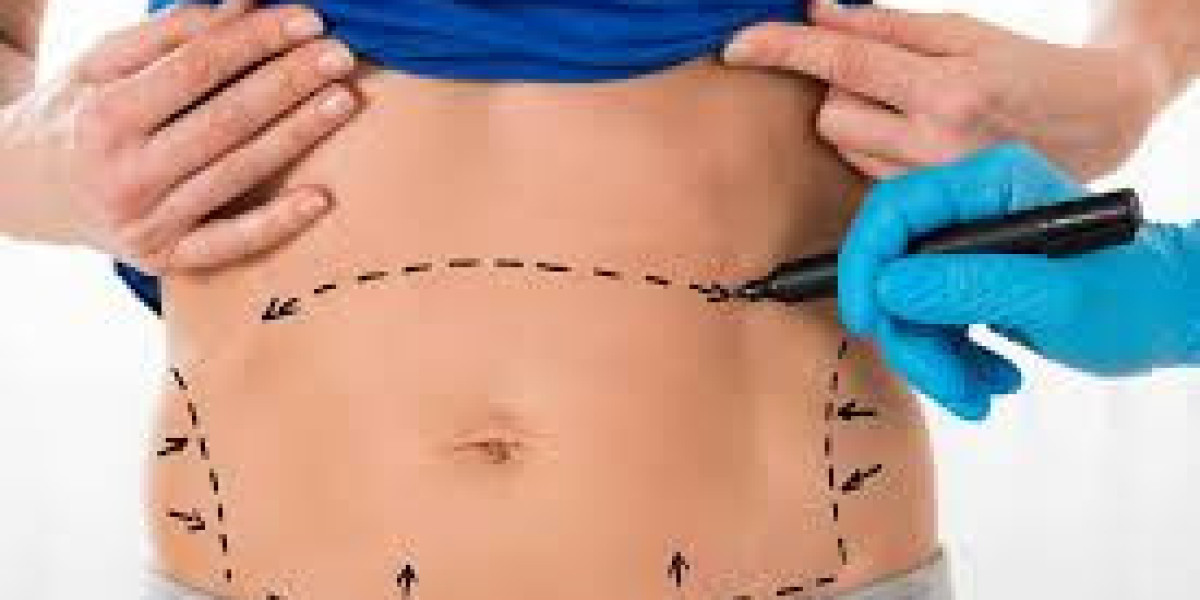Liposuction is a popular cosmetic procedure for removing stubborn fat and achieving a more contoured body. However, like any surgery, proper post-operative care is essential for achieving the best results and minimizing the risk of complications. Recovery can vary from person to person, but there are key things to avoid to ensure your healing process goes smoothly. In this article, we'll explore what you should avoid doing after liposuction for optimal healing.
Avoid Strenuous Physical Activity
After liposuction (شفط الدهون ), your body needs time to heal, and engaging in intense physical activity too soon can hinder your recovery. Strenuous exercise, such as heavy lifting, running, or high-impact aerobics, can increase your heart rate, raise blood pressure, and lead to swelling, bruising, or even complications.
Why It’s Important to Rest?
Liposuction targets the fat cells beneath the skin, and it’s crucial that the tissues remain undisturbed while they heal. Excessive movement or exercise can stretch the skin and underlying tissues, which may affect the contouring results. Additionally, your body needs time to adjust to the removal of fat and to allow your skin to tighten. Resting and avoiding strenuous activity is critical for giving your body the opportunity to recover.
What to Do Instead?
Instead of intense workouts, focus on gentle movement, such as walking, which can help with circulation and prevent blood clots. Be sure to follow any activity guidelines provided to you to avoid overexertion.
Avoid Tight Clothing
While compression garments are typically recommended after liposuction to support the healing process, wearing excessively tight clothing that isn't designed for post-liposuction recovery should be avoided. Clothing that constricts your body too much can interfere with blood flow, cause discomfort, and increase the risk of skin irritation or infection.
Why Compression Garments Are Important?
Compression garments help reduce swelling, improve skin retraction, and support the treated areas during recovery. However, it’s important that these garments fit snugly without being uncomfortably tight. The compression should provide support but not cause excessive pressure that can lead to circulation issues or restrict your movement.
What to Do Instead?
Wear the recommended compression garments as directed to ensure proper healing and support. These garments are designed to fit comfortably while offering the right amount of pressure to help contour your body and minimize swelling.
Avoid Smoking and Alcohol Consumption
Smoking and drinking alcohol can significantly slow down the healing process after liposuction. Both of these habits interfere with circulation, reduce oxygen flow to tissues, and may increase the risk of complications, such as infection or delayed wound healing.
The Risks of Smoking and Alcohol:
Smoking reduces blood flow and can cause constriction of blood vessels, which impacts the body’s ability to heal efficiently. Alcohol can dehydrate the body, impair judgment, and even interact with medications prescribed post-surgery, potentially leading to undesirable side effects.
What to Do Instead?
It is essential to avoid smoking for at least several weeks before and after the procedure to promote optimal healing. Similarly, it’s important to refrain from drinking alcohol for the same period. Focus on staying hydrated and nourishing your body with healthy foods to support the recovery process.
Avoid Taking Over-the-Counter Medications Without Approval:
Certain over-the-counter medications can increase the risk of bleeding or interfere with your body’s ability to heal. Medications like aspirin, ibuprofen, and other nonsteroidal anti-inflammatory drugs (NSAIDs) should be avoided after liposuction unless directed otherwise.
Why It’s Important to Avoid Certain Medications?
Some medications can thin the blood, leading to excessive bleeding or bruising after surgery. Others can negatively interact with prescribed medications that help manage pain or prevent infection.
What to Do Instead?
Consult with your healthcare provider before taking any medications, including over-the-counter pain relievers. Only take medications that have been approved, and follow your post-operative instructions carefully to manage any discomfort or other side effects.
Avoid Sun Exposure:
Direct sun exposure to treated areas of your skin after liposuction can cause complications such as hyperpigmentation, scarring, and delayed healing. The skin in the treated areas is often more sensitive following surgery, and the sun's UV rays can damage the skin and slow down the recovery process.
Why Sun Protection Matters?
The healing skin is more vulnerable to sunburns and pigmentation changes. Prolonged sun exposure can also exacerbate swelling and irritation, which can negatively affect your recovery process.
What to Do Instead?
If you need to be outside, wear loose, protective clothing to shield the treated areas from the sun. Additionally, apply a broad-spectrum sunscreen with an SPF of 30 or higher to protect the skin from UV rays. Follow sun safety practices for several weeks following liposuction to ensure the best possible outcome.
Avoid Sleeping on Treated Areas:
It’s important to avoid sleeping on the areas that have been treated with liposuction. Pressure on the treated regions can cause discomfort, swelling, and affect the final results of the procedure. Laying on the treated areas too soon can distort the contour and prevent the skin from healing properly.
What to Do Instead?
To avoid putting pressure on the treated areas, sleep on your back with pillows to support and elevate the areas where liposuction was performed. This position helps reduce swelling and allows your body to heal without additional strain.
Avoid Neglecting Post-Operative Care
After liposuction, following post-operative care instructions is crucial for minimizing risks and ensuring the best possible results. This includes attending follow-up appointments, wearing compression garments as instructed, and taking any prescribed medications as directed. Neglecting these instructions can lead to complications, such as infection or poor results.
What to Do Instead?
Follow all post-operative care guidelines provided. Be consistent with your recovery plan and maintain regular check-ins to monitor progress. This ensures you stay on track and helps identify any potential issues early.
Conclusion?
After liposuction (شفط الدهون ),, following proper aftercare is essential for achieving the best results and minimizing complications. By avoiding strenuous physical activity, smoking, alcohol, and other harmful behaviors, you allow your body to heal efficiently and smoothly. Taking time to rest, wear appropriate compression garments, and avoid unnecessary stress on your body ensures the best possible outcome from the procedure. Stay informed and follow post-operative care instructions to support your recovery and achieve the body contour you desire.









